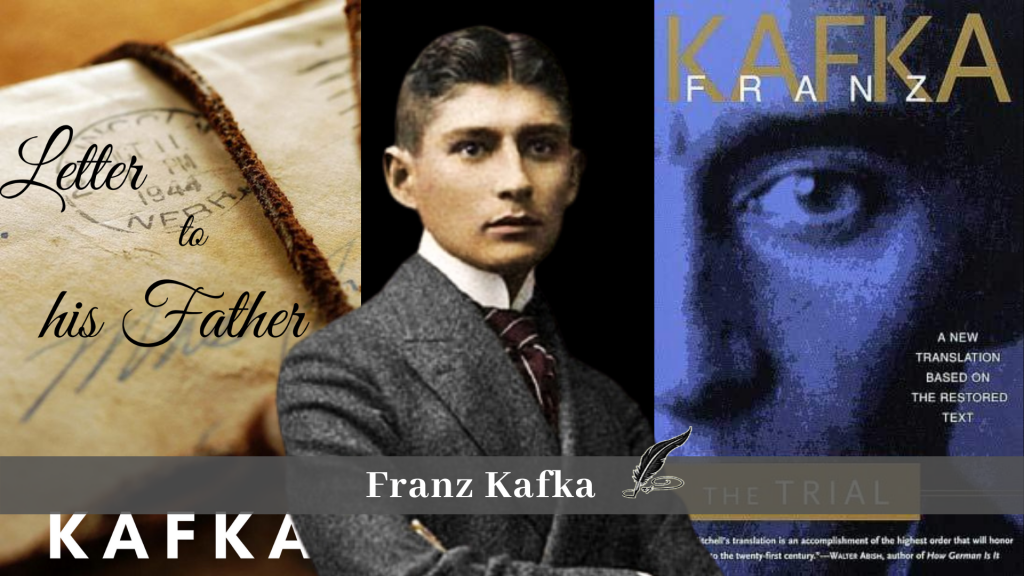
6 Franz Kafka Books Everyone Should Read And Why
Franz Kafka is one of the most significant fiction writers of the 20th century, widely known for his novel ‘The Metamorphosis.’ He is regarded as the prominent realistic writer whose works inspired many contemporary authors to explore realism and fantasy. Franz Kafka books have been translated to various languages.
Kafka worked in an insurance company briefly before leaving his job to focus on his writing career. His writings depict his struggling relationship with his overbearing father as he never approved Kafka’s choice of writing as a career. He took shelter in books to fight his self-hatred, guilt, and anxiety.
You are free, and that is why you are lost.
Notable for his surreal, erratic, uniquely disorienting, and complex writing style, Kafka’s style is so peculiar that Kafkaesque carved into a term. It describes nightmarish settings and bizarre circumstances where an individual feels helpless before blind, uncontrollable forces.
Kafka explored the themes of alienation, existential anxiety, guilt, and absurdity. Most of his protagonists are faced with absurd circumstances and senseless obstacles without any reasonable explanation and become prey to alienation. But more importantly, they never give up fighting. They might be representing Kafka’s inner resolve and despair against the judgmental society.
Most of his works remained incomplete in his life and were published after his death by his friend Brod who ignored Kafka’s wish to burn his unfinished works and published them. Germany has established The Franz Kafka Society, a non-profit organization to celebrate the German Language literary heritage and pay homage to Franz Kafka. It organizes literary seminars, provides financial support to authors, and promotes German literature worldwide.
Here are 6 top books from Franz Kafka that you must read.
1. The Metamorphosis
I cannot make you understand. I cannot make anyone understand what is happening inside me. I cannot even explain it to myself.
The Metamorphosis is one of the finest works of existentialism and is regarded as Kafka’s masterpiece. The novel depicts an unusual happening that hardly takes place in fiction works. Gregor Samsa wakes up one morning to discover he’s transformed into a giant beetle-like creature. Can he and his family adjust to his new form?
The author shows the struggle of human existence and how relations change during different phases of life. The narrative emphasizes the change in human emotions and relations as the sudden shift in Samsa’s family behavior after all the years he took care of the whole family.
Madam Writer is all praise for Kafka’s selection of ideas in this Metamorphosis review, especially how this story has different meanings for different people who read it.
2. The Castle
One must fight to get to the top, especially if one starts at the bottom.
Kafka fans have developed an emotional association with the Castle because he couldn’t complete this book in his life. The novel leaves the reader pondering what it is that K wants from the Castle. Why does he want to get into the Castle? Perhaps if Kafka could complete his story, we’d know… or maybe, in his true style, he would have left the readers in limbo even then.
Like every other Kafka tale, the story has as many meanings as the readers can come up with. For me, it’s the futility of life, the impossible goals we set to achieve, or the mirage of happiness we toil for all life. Or it’s the tale of struggle in the face of indifferent authority, the Castle being an allegory of bureaucracy where no layperson can enter despite his honesty and devotion.
I’m amused by Hannah Riggott’s review of the Castle and agree that one should postpone pondering the meaning until one reads the complete Kafka story.
3. The Trial
Someone must have slandered Josef K., for one morning, without having done anything wrong, he was arrested.
A memorable opening to another masterpiece by Kafka, which could not be published in his life. A terrifying tragedy of Josef K, a bank officer, who is inexplicably arrested by remote, inaccessible authority and has to defend himself throughout his life.
After reading the novel, there are questions, questions, and more questions revolving in the reader’s head as both the reader and Josef K. are unable to find out the crime he is being tried for.
While reading ‘The Trial’ you’ll feel bewildered, numb, a bit soul-weary and emotionally distant.
‘The Trial’ attacks on totalitarianism and the evilness of a mindless bureaucracy and man’s useless struggle against these forces depict the universal theme we observe in Kafka’s works.
I agree with Matthew Selwyn’s review of The Trial that it was written 100 years ago but still considered a modern man’s tragedy.
4. The Penal Colony
The injustice of the procedure and inhumanity of the execution were incontestable.
Critics have often quoted the unexplainable horror and menace in Kafka’s words, clearly visible in The Penal Colony. A traveler to a tropical penal colony is invited to watch the execution of a prisoner. Interestingly, the prisoner never receives a trial and is kept unaware of his execution.
The executioners use the Harrow, a unique execution machine, to punish him for a crime he may not have committed.
The last words of the story will leave any sane reader bewildered, and disgusted. The story offers many interpretations to readers, be it a totalitarian and an illegal law system, the death penalty, religious interpretations, the First World War consequences, or the psychological considerations. The answer is left upon the reader in true Kafka style.
In this review of The Penal Colony, Mojoreb considers it the perfect example of why critics consider Kafka, a straightforward writer.
6. A Hunger Artist
Nothing was more excruciating to the hunger artist than such watchers. They depressed him.
This short story book was Kafka’s last published work during his life. In A Hunger Artist’s story, whether he was an artist or not was left for the readers to justify. What he did for fame? What he did to prove himself? How cruel is it to die for something so petty?
It’s surprising when readers come to know it wasn’t the fame for which the hunger artist starved, but the discomfort or dissatisfaction of imminent mortality. This story is the finest example of Kafka’s universal themes – death, art, isolation, asceticism, spiritual poverty, futility, personal failure, and the corruption of human relationships.
Watching hunger artists is like watching yourself, your life, your decisions, and above all, your death.
According to Jim Breslin’s review of A Hunger Artist, the story depicts the battle between the inner self and the ignorant world the artist is fighting.
7. Letter to His Father
There is nothing bad to fear; once you have crossed that threshold, all is well. Another world, and you do not have to speak.
The very first impression after reading Kafka’s Letter to His Father is haunting, sad, disturbing, emotional, and a lot more! Kafka is unclear why his father has declared him the domestic tyrant.
The novel will scare you to your soul if you are an obedient and faithful child like Kafka. He considered his father what he never was — a man of “health, appetite, the loudness of voice, eloquence, self-satisfaction.”
While you are reading the letter, it creates uneasiness in your heart to read something which isn’t for us, and the knowledge that the original addressee never read it.
Melissa Beck’s review of Letter to His Father talks about how Kafka always saw his father as a symbol of tyranny and totalitarianism.
We welcome you on a journey around the world as we explore works of 80 cherished authors around the world. We list their famous books, give you an overview, and connect you to the best book reviews by readers like you and me so that together we can learn stories from around the world.
Find more author reviews here
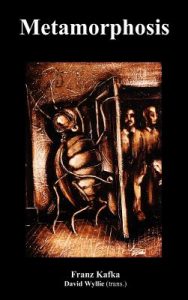
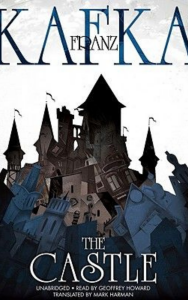
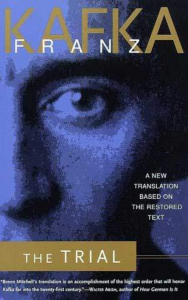

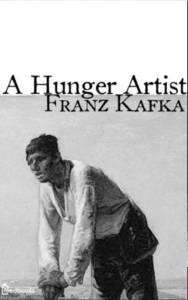
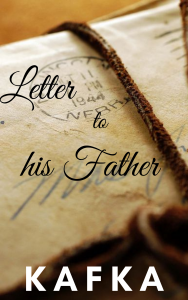
1 thought on “6 Franz Kafka Books Everyone Should Read And Why”